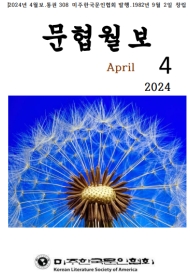Oncoming Traffic
=================
Wolran Kim
Mar. 2012
If I am standing in front of a moving bus, the bus will obviously take me down with a 99% chance. The remaining 1% chance is the bus possibly stopping once the driver sees an obstacle, because a car is an object that needs a driver. We call this sort of knowledge common sense, and the most common senses are obtained by experience. Empirical knowledge is gained through the five human sensory organs—eyes, nose, ears, mouth, and hands—and rational knowledge is gained through rational human reasoning. Experience has a difference in region and time and rationality does not. Instead, rational knowledge is right or wrong.
Humans obtain new knowledge with additional reasoning, not stopping to obtain it just by experience. Humans have answered a lot of questions through sensory experience and their own rational reasoning. Of course, all such reasoning is not always valid, and many cases that used to be found true are now incorrect; for example, the earth is flat, and the sun turns around the earth.
Recognition is the ability to discern and judge, and it is associated with all conscious processes of constructing knowledge. Common sense about a car accident comes from experience of repeated knowledge, and this is impossible knowledge to know with just a reasonable inference. If we have never seen a bus and a dying person directly or indirectly, how could we possibly know the movement of the bus or how easily the human body can be hurt? However, there will be intuitive knowledge too; it is a mysterious reflex of the human body that eyes blink when an offensive fly attacks the eye even suddenly to the speed of light.
A “fact”—or I’ll call it a “guess” because this is about the future, not about the past or present—that I will fall if I do not move in front of a moving bus, comes from awareness of the knowledge about the human body and a car. This perception is derived from the experience of the past. We were not born with this knowledge about the body and car, but we know this through seeing or hearing with common sense even though no one taught us. The object of a car is an invention of humans, and we have knowledge of cars by experience that a car is a running transport as a human drives. Humans were born with endowed structures that can think and act with perception of repeated experience. We will not be able to perceive if we did not have such a brain structure even though we experience every day.
Hume’s claim that there is no rational causality between the past and the future is acceptable. But the actuality that a car is a moving object if not stopped by artificiality, and that the human body is a weak object which falls from being hit, is a fact. This fact does not change without any miracles or epochal technology. We probably would jump in front of moving cars whenever we get angry, if we had seen many times in the past that the car has an obstacle detection device and would stop automatically in front of any obstacle. A car accident is a simple and customary belief, such as the sun rising because it did every day in the past.
However, even Hume, who said that there is no single rational logic in those types of knowledge, would not keep standing in front of a moving car. We are living in habitual faith. Any miracle or rational logic does not protect human safety within the context of common sense. We can live without philosophy, but our lives will be uncomfortable as a whole without common sense.
Philosophy of common sense, which developed against Hume’s skepticism and Berkeley’s subjective idealism, argues that the sense and perception of ordinary people has a faith containing nature of the external target, not a mere idea or subjective impression. Common sense is at the same level to an ignorant person as it is to a wise person, and a philosopher or a daily worker. Straightforward cases such as car accidents come from experience rather than rationality, and these are philosophies of common sense which are described as customs and habits to Hume.













